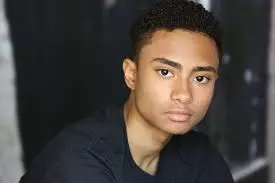
What are we really teaching our students?
text_fieldsLogan Rozos (file photo)
What are we preparing our students for?
In classrooms across the globe, universities claim to cultivate critical thinkers—young people who question the world, stand against injustice, and speak up in the face of wrong. We assign Gandhi's Hind Swaraj, Ambedkar’s Annihilation of Caste, and Martin Luther King Jr.’s Letter from a Birmingham Jail. We urge our students to speak truth to power. We quote from their speeches and ask our students to reflect on moral courage.
But when students like Logan Rozos actually practice those lessons—not in theory but in real time—institutions punish them.
Rozos, the valedictorian at NYU’s Gallatin School of Individualized Study, stood at the podium on graduation day and did what any conscientious young person might do in the face of mass suffering. He said:
“The only thing that is appropriate to say in this time and to a group this large is a recognition of the atrocities currently happening in Palestine.”
One line. Calm, direct, and grounded in reality. For this, NYU withheld his diploma and launched a formal investigation.
The university claimed he deviated from his pre-approved script. But this wasn’t a product launch or a government briefing—it was a graduation speech, a culmination of years of intellectual and moral growth. And Rozos used that moment to call attention to the suffering of people facing bombardment, starvation, and forced displacement.
Instead of honoring that courage, NYU responded with censorship and retribution.
It’s hard not to see echoes of this moment in the histories of others who dared to speak—students, reformers, dissidents—who were punished not for being wrong, but for being early.
In colonial India, young people were at the forefront of freedom movements. Gandhi called on students to leave British institutions, to resist participation in structures that enabled injustice. Ambedkar, decades later, would call for education not just as a path to employment, but as a weapon for liberation. He insisted that learning must be paired with dignity and justice—or it would serve only the oppressor.
What would Gandhi or Ambedkar say if a university silenced a young man for acknowledging a genocide?
This incident reminds us that even in the world’s most prestigious institutions, colonial habits of power still persist. Censorship, fear, and control are disguised as “protocol” and “neutrality.” But we know from India’s own journey that neutrality in the face of oppression is a betrayal of the oppressed.
And we also know—from our anti-caste, anti-colonial, and pro-democracy movements—that it is often the youngest voices that lead the way.
Rozos’ words were not inflammatory. He did not shout or accuse. He simply spoke an uncomfortable truth—one backed by Amnesty International, Human Rights Watch, UN experts, and genocide scholars around the world. But in the eyes of NYU, the problem was not what he said, but that he said it.
The message this sends to students everywhere is chilling: speak your mind only if your truth is convenient. Stay in line. Keep your empathy in check. Know your place.
This isn’t education. This is indoctrination.
If we are serious about preparing students to navigate the complexities of our world—to resist hate, uphold justice, and challenge power—then we must create space for them to practice those values, not just recite them in essays.
NYU’s actions are part of a disturbing pattern. Over the past year, the university has arrested student protesters, rewritten conduct policies to punish criticism of Zionism, and canceled a lecture by the former head of Doctors Without Borders because she dared to mention Israeli attacks on aid workers.
Rozos is only the latest to be silenced. But perhaps the most symbolic.
Graduation is not a marketing event. It is a moment for reflection. For moral clarity. For integrity.
Rozos understood that. And he acted on it.
As an educator and lawyer, I’ve seen young people struggle with whether to speak up. They worry about careers, visas, and retaliation. And increasingly, they are learning that taking a moral stand—even a peaceful, reasoned one—comes at a cost.
But perhaps that is what makes it meaningful.
In India, we have our own legacy of students leading revolutions. From Quit India to the anti-Emergency movement to more recent mobilizations against discriminatory laws, it has often been the youth—armed with little more than their ideals—who have defended the soul of the republic.
Logan Rozos joins that global lineage. His diploma may be delayed, but his integrity is intact.
What universities must ask is not whether he followed the rules, but whether they followed the mission they claim to uphold: to foster informed, engaged citizens with the courage to
There is a line from Ambedkar that feels especially relevant now:
“Cultivation of mind should be the ultimate aim of human existence.”
But a cultivated mind that does not act—especially when confronted with injustice—is merely decoration.
Rozos acted. NYU punished him.
If this is what elite education looks like, then we must ask ourselves again: What are we really teaching our students?
And more urgently: Are we still willing to learn from them?
(Faisal Kutty is a Toronto-based lawyer and regular contributor to The Toronto Star. His articles also appear in Newsweek, Aljazeera, Zeteo, and Middle East Eye. You can follow him on X @faisalkutty)












